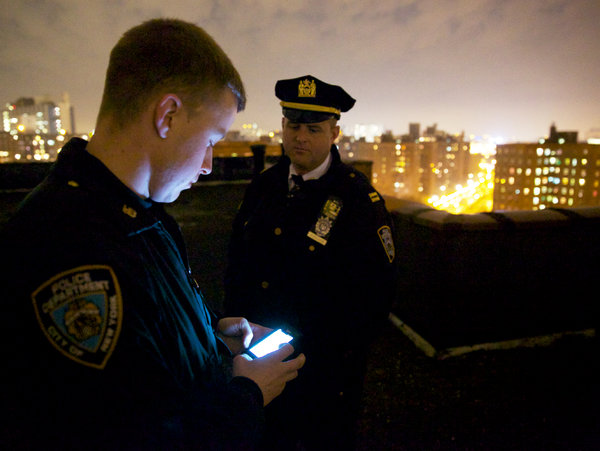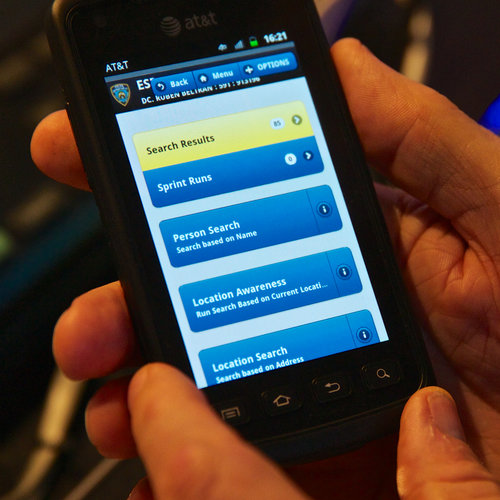New York police officers equipped with Android-smartphones with "police" applications for quick access to databases

The New York City Police Department has launched a program for the "smart" of the police. As a pilot stage, 400 police officers issued smartphones with special applications that help to quickly access the necessary data, whether it is the identity of the criminal or the owner of a particular car.
The most interesting thing is that these smartphones cannot receive calls, you cannot make calls from them either. But these mobile devices are connected to the web, so you can send and receive data without problems. According to representatives of the police department, such a scheme of work can significantly speed up the work of police officers in the situations mentioned above. Police cars are equipped with computers, yes. But often, to get any information, a police officer needs to log in several times, for different databases, but in some situations every second is precious.
')
As an example, the real situation is given when the police needed to carry out the situation in Harlem. The police, on arrival in the area, scored the address of the building associated with the operation, and in a couple of minutes received detailed information about all the inhabitants of this house, including the full name, the history of the drives to the police, photos of some residents (those who had already entered the police). The police even managed to gain access to the surveillance camera records located on the building.

Earlier, when a criminal was detained, the police sometimes had to ask for help from the dispatchers who could tell whether the detainee had been arrested earlier or not. But the dispatcher usually cannot call the reason for the detention.
According to representatives of the police department, smartphones can also be useful in the analysis of domestic crimes. For example, you can see how many times the police were called to the indicated address, what caused the conflict, and so on and so forth.
San Francisco police also keep up with their colleagues from New York. There are also specialized applications now running that differ from those used by the New York police. So, now in San Francisco the police can dictate reports by attaching to the dictated photo of their police badge (to identify who reported in the future).
The only interesting thing is what happens if a police officer forgets his smartphone in a bar. Is it possible to disconnect a device remotely from the database? Or would anyone who received such a smartphone be able to work with information from the police department, like a police officer himself?
Via nytimes
Source: https://habr.com/ru/post/176511/
All Articles